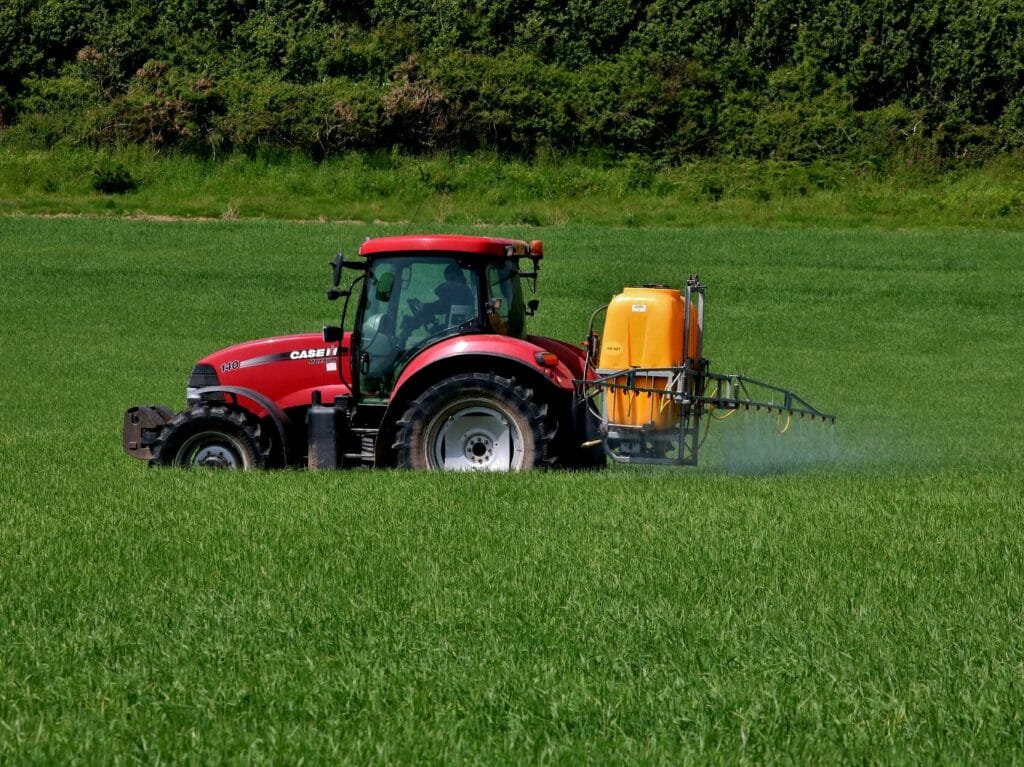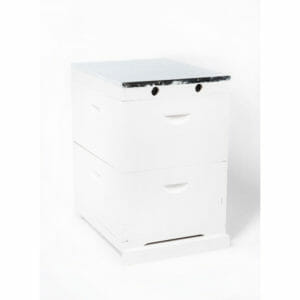USA honey bees are facing yet another lethal threat from new “drift-prone” applications of weed killer Dicamba.
Beekeepers have linked new “drift-prone” applications of the weed killer Dicamba with a worrying trend. Bee numbers and honey production has recently plummeted in southern USA. Both beekeepers and scientists believe the herbicide is killing the wild forage that the bees need to survive. On top of this, local farmers have been in crisis for two years now, as the herbicide “ravages” their non-GM crops.
These agricultural crops help bees survive drought. But, as Reveal News reports, recent research shows that bees get most of their pollen from wild vegetation. Either way, if bees don’t get enough pollen, they can’t make the fat they need to survive the cold US winters.
There is also suspicion that Dicamba affects bee gut health, in a similar way to Glyphosate, but the research on the former is still lacking. Glyphosate reportedly disrupts the gut bacteria of honey bees. These gut bacteria are essential to honey bee immune function and other health factors.
Bees also rely on gut bacteria to digest whatever pollen they do manage to consume. What if weed killers are disrupting this specialised digestive bacteria too? If this proves to be the case, it seems that bees are being twice-starved.
The drifting is due to the recently approved practice of top spraying Monsato’s new, genetically modified, Dicamba resistant crops. Fortunately, such crops are not grown in Australia. But the way approvals were pushed through in the USA, and the widespread consequences now unfolding there, is still a cautionary tale to us all.
Rueters has been investigating since the “early warning signs” of the crisis emerged in 2017. In August that year they reported that, “as the U.S. growing season entered its peak this summer, farmers began posting startling pictures on social media: fields of beans, peach orchards and vegetable gardens withering away.”
Skip ahead to January 2019. By now US farmers have watched the drift-prone weed killer “ravage millions of acres of crops” for a second season. But media has also begun turning their attention to beekeepers. Beekeepers like Richard Coy in Arkansas, who noticed a “parallel disaster” unfolding among the weeds near his apiary.
Coy told Reveal News how the flowering weeds surrounding his property had withered and died since Dicamba use began. He then realised “why hives that produced 100 pounds of honey three summers ago now were managing barely half that.” He believes that “Dicamba probably had destroyed his bees’ food.”
There are worrying trends in South Dakota too, which has reported about 250,000 acres of Dicamba-injured soybeans since 2017. Locals Adee Honey Farms told Reveal that they usually manage 80,000 to 90,000 hives. But now, they say “our numbers have been so destroyed the last couple of years, we’ve started using other people’s bees.”
And with colony numbers down, beekeepers have been struggling to fill their trucks with hives for pollination services as well. Reveal News spoke to several beekeepers that are now “facing massive cuts to what is typically their biggest paycheck of the year”.
Also worrying is the claim by Reuters that “scant oversight and corporate secrecy” preceded this crisis. Reuters obtained information from independent researchers and regulators, and accessed testimony by a company employee. Information that revealed the “unusual” way Monsanto was able to introduce the product.
Apparently, “Monsanto prevented key independent testing of its product.” This “went unchallenged by the Environmental Protection Agency and nearly every state regulator”.
Add to this the fact that agricultural ecologist David Mortensen told the EPA of the risk Dicamba posed as far back as 2009. And in 2011, the EPA’s own scientists cited Mortensen’s work to conclude that increased use of Dicamba could affect pollinators.
But the EPA registered Dicamba in 2016 despite the warnings, as Reveal News reported in November 2018. The EPA has extended approval through 2020.
Mortensen saw his predictions realised across the 2017 season. He then filed this report in another attempt to highlight the danger. And so, it seems it’s time for governments and corporations to start listening to scientists again.

Visit the Bee2Bee online shop for beekeeping equipment and supplies.




